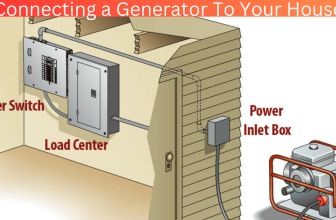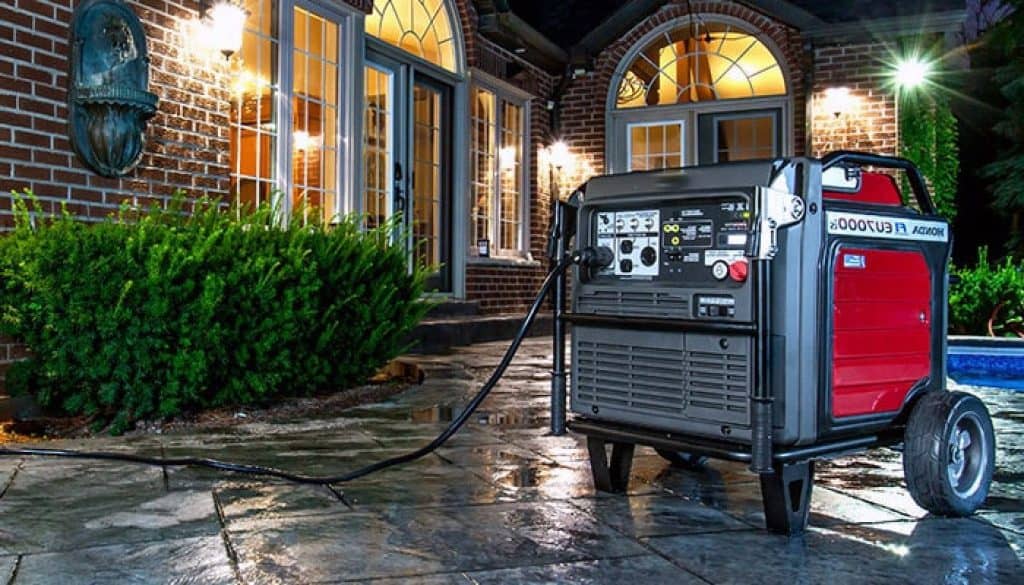
For those seeking a portable generator for their home backup power supply picking out just one among so many options can be quite a challenge. The sheer number of factors involved makes it difficult to know where even begin researching first.
My goal with this guide is to simplify that process for you by offering clear insights into what each individual type of portable generator brings to the table alongside practical advice on how best to select one that perfectly suits your own distinct requirements.
Understanding Your Home’s Power Needs: What Are Your Must-Have Appliances?

Picking the best portable generator for your household necessitates having clarity and understanding of your home’s power needs beforehand. Vital equipment, including refrigerators/freezers/sump pumps/air conditioning units/critical medical gear such as oxygen machines and nebulizers ought to be identified along with appropriate lighting sources during blackouts.
Following this identification of necessary electrical loads during critical situations and emergency scenarios, calculate their corresponding wattage requirements to determine what total electrical output is needed from your portable generator.
It is also equally crucial to consider how often you intend on running the generator; a smaller unit may do if its only expected to be used occasionally during emergencies. For those who anticipate recurrent usage of their generator (e.g., camping excursion), it is essential to consider obtaining larger models capable of providing higher wattage over longer duration.
Being aware of this fact empowers you to choose a generator tailored specifically to meet all your energy demands at home without compromise or inconvenience. All that remains is selecting the best fit for your usage frequency and electrical requirements.
Portable Generator Sizes: How Much Power Do You Really Need?

When taking into account portable generators don’t assume that bigger is better – because it isn’t necessarily true! Although larger sized units might supply more power evaluating what exactly you require from your unit should come first before making a purchase decision based purely on power output.
Therefore, reflect on how frequently you plan on using it and what specific appliances or devices will be powered with it upfront; only then can you confidently choose which size fits your needs best.
It is important to determine whether a generator’s wattage rating aligns with everything that needs connecting before purchase decision making takes place. Moreover, think about how many items at home are planned simultaneously as well so that overloading doesn’t happen unexpectedly. If running all your appliances simultaneously turns out impossible due to low power output then upscale by opting for a larger model may become necessary in order to avoid unnecessary frustration down the line.
Understanding which type of electrical power consumption is appropriate for optimum functioning within home backup systems should always remain top of mind during this selection process as well! When it comes to selecting a new device it pays off to do some preliminary research before making your final decision.
Understanding how much power is required for each model will help ensure that you select the right one for your specific needs and budget. In essence, taking some extra time now could prevent future complications down the road.
Fuel Types: The Pros And Cons Of Gasoline, Diesel, And Propane Generators
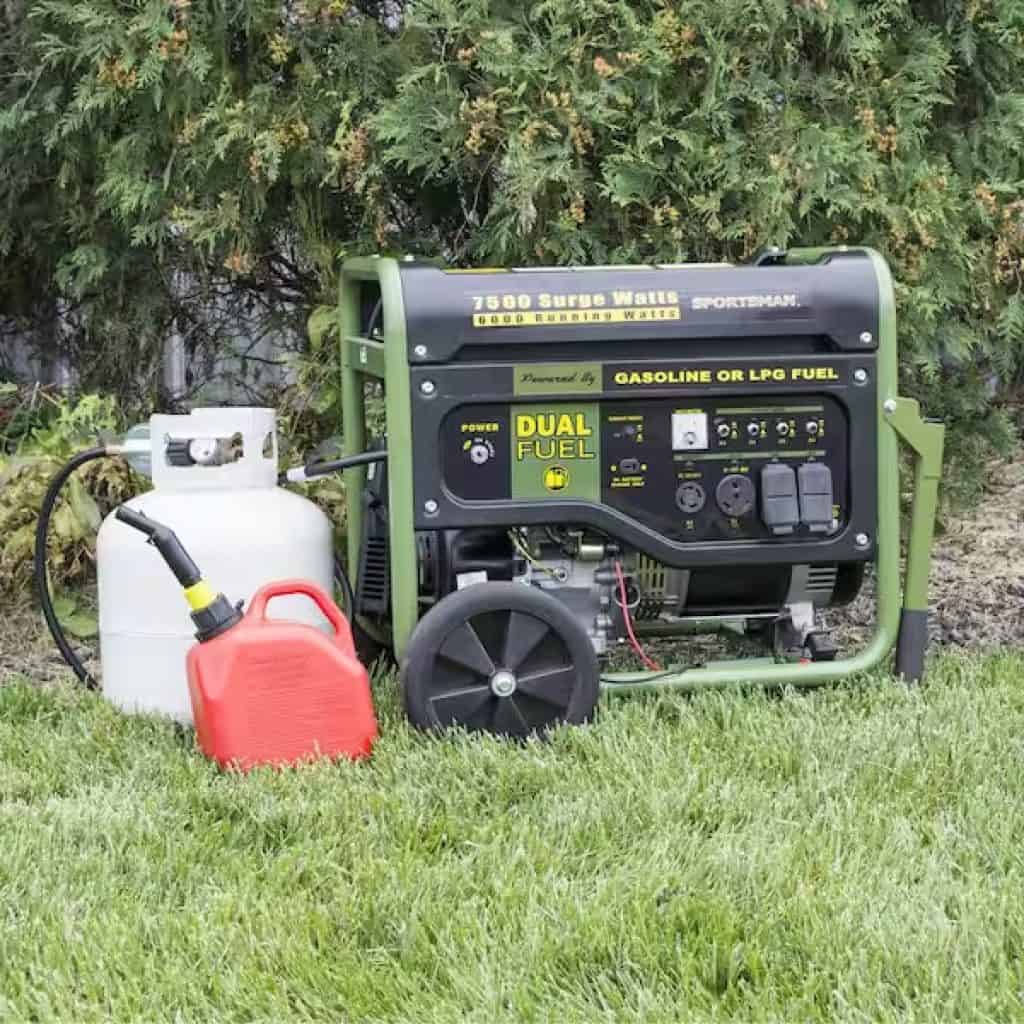
When choosing the right portable generator – factors like power output are crucial yet so too is selecting the correct fuel type among available options such as propane, gasoline or diesel. Since each fuel has its own unique benefits as well as downsides – carefully considering their impact will lead to wiser purchasing decisions in the long run.
One common option used by many generators’ customers is gasoline due largely in part because its inexpensive and can easily be found at gas stations nationwide with varied grades suitable for individual needs.
Nevertheless, its worth noting that gasoline poses certain dangers when mishandled since its highly flammable; risking hazards such as explosions or fires when proper precautions aren’t taken during storage or use periods.
Another popular choice powering portable generators is diesel with several notable advantages over comparable petrol engines including increased engine lifespan along with reduced overall maintenance requirements.
Diesel also boasts a higher energy density per gallon when compared to gasoline fuels creating a potentially more robust power output as a result. However diesel fuel tends to be pricier which may present challenges for some users on a budget.
If you’re in the market for a portable generator and trying to determine which fuel source is right for you propane may be worth considering. Its widely available at most home improvement stores and can be easily refilled whenever needed.
Furthermore, using propane means generating fewer emissions into the air compared with gasoline or diesel options—something that could be particularly appealing if environmental concerns are important to you. Of course there are drawbacks to consider as well: Propane can evaporate quickly from tanks or hoses if not used regularly enough over time.
This could lead to maintenance issues down the road that could prove costly in terms of both time and money. Ultimately though weighing all of these factors carefully will help ensure that you choose the right fuel source for your particular needs.
Considering Noise Levels: How Loud Is Too Loud For A Home Generator?
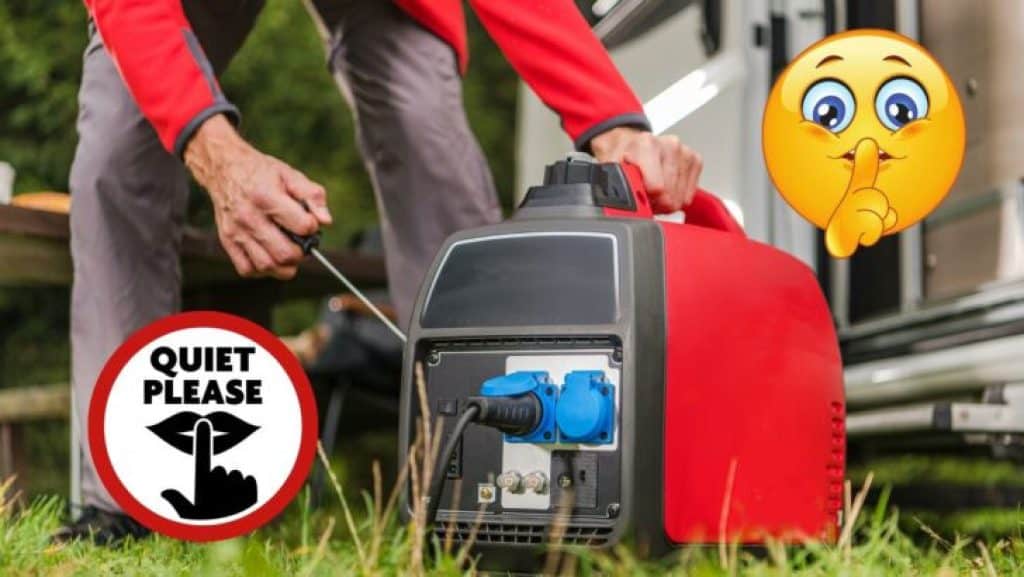
Peace and quiet are priceless commodities – compromised easily by loud electrical generators operating nearby during power outages or emergencies at homes. In such cases purchasing portable generators for home backup power is essential only after considering their noise level during operation.
The sound levels produced by generators are measured in decibels (dB) with higher ratings indicating louder generators on average. For homeowners looking for peace of mind experts suggest adhering to a maximum limit of 70 80 dB – any higher could cause disturbance among neighbors or oneself!
It’s worth noting certain models generate low noise levels of only 45 50 dB – which is equivalent to normal conversation! To locate such models with silent operation capabilities read through customer reviews carefully and check out the manufacturers specifications before making your final selection.
Additionally, visiting hardware stores and asking sales associates to turn on different generator models can provide useful insights into their operation sounds’ actual intensity levels.
Making an informed decision about selecting a home backup power system is key. Educate yourself on various options to ensure you choose a suitable option that will keep powering your household even during outages.
Expected Run Time: How Long Should Your Backup Generator Last?
During power outages caused by unforeseen natural calamities like storms and hurricanes access to uninterrupted power supply is critical; hence having an efficient home backup generator helps avoid such potentially dangerous situations.
The expected run time determines how long your home backup generator operates before shutting off during unexpected power outages; thus settling on the ideal model with the appropriate runtime duration is essential when selecting a backup generator that adequately serves your needs in emergencies.
The two main types of generators available are portable and standby generators with each having specific features unique to their mode of operation.
Portable generators have smaller fuel tanks that limit their runtime capabilities often lasting only several hours or less.
In contrast, standby generators possess more extensive fuel storage capacities capable of powering homes for up to several days if adequately fueled but also incurring higher operational costs due to increased fuel consumption levels when compared to portable models.
Thus, when selecting an appropriate backup generator model evaluate your required runtime needs while considering related fuel expenses premiums associated with such models
Safety Measures: What Safety Features To Look For In A Home Generator
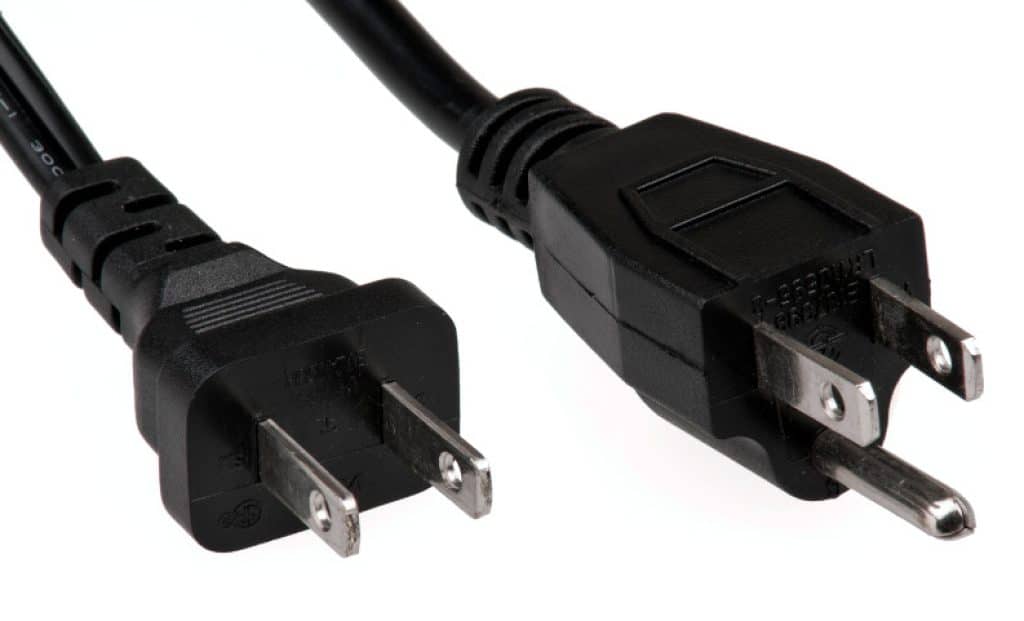
Selecting a suitable generator for backup power at home can be challenging. However, prioritizing safety over other features while shopping will guide you towards making a wise decision. Here are key safety features worth considering while selecting a generator:
Ensure you opt for automatic shutdown systems for your device. Such systems turn off the generators on sensing issues like overheating or depletion of fuel levels minimizing risk factors.
Low oil shutoff is another essential consideration as it protects against engine failure by powering down if there’s insufficient lubrication present.
Incorporating GFCI outlets into your device ensures added security as they switch off immediately during electrical surges reducing risks associated with electric shocks.
Lastly, surge protection systems (SPS) help protect electronic devices from voltage surges and spikes while preventing damage to sensitive components.
Their Applications in Developing Countries No one wants to think about potential disasters striking their home – but being prepared could make all the difference when they do. For homeowners who rely on generators for backup power choosing one with robust safety features like automatic shutdowns and spark arrestor mufflers is absolutely essential.
These measures serve as critical safeguards against dangerous sparks or heat escaping from the engine while it runs – protecting both your property and yourself from harm. Don’t take any chances when it comes to emergency power – invest in a model that prioritizes safety first. (Wackernagel H.)
Reference:
- Domański P., Wnuk T., Safety Analysis of Autonomous Emergency Power Systems in Buildings Based on Fuel Cells and Photovoltaic Generators
- Bhatia R., Electric Power Distribution Handbook
- Szabłowski Ł., Polska Technika Motoryzacyjna: Eksploatacja i Naprawy
- Melsa J., Electrical Power Distribution, Protection and PFC
- Wackernagel H., Renewable Energy Technologies
Inverter Generators Vs Conventional Generators: Which One Is Right For You?
Choosing the right home generator can be vital during emergencies or power outages.
Deciding between an inverter or traditional generator should depend on several factors, including efficiency, cost effectiveness, and portability.
Inverter generators offer impressive advantages despite being pricier than standard models. They’re quieter with greater efficiency compared to conventional generators making them ideal for outdoor picnics and camping trips requiring minimal noise levels. Also, their clean power output means these options are compatible with sensitive electronics while remaining lightweight enough to store conveniently.
On the other hand, if affordability ranks high on your priority list when looking at generator types – choosing a conventional option could be worthwhile due to its lower price points; however its bulky size might make it inconvenient for portability purposes.
Finding a reliable source of backup power is crucial when living in areas prone to bad weather conditions such as hurricanes and storms.
Whether to go with traditional or inverter generator may depend on certain conditions specific to particular circumstances but mainly revolves around how fast they can deliver necessary electrical energy.
While traditional models boast impressive quick output capabilities ideal for multi device usage during emergencies; modern day inverter generators come with benefits such as quieter performance and reduced pollution levels from low emissions engines.
To make an informed decision on whether to settle with an inverter or non inverter model; consider such critical factors like weight restrictions portability features alongside electricity demand before making any final choice that fits both your needs and budget.
Weather Resilience: Choosing A Generator For Your Climate

Power outages leave us feeling powerless and disoriented- but theres no need for it. The solution comes in investing in a generator that can withstand the climate specifics of your region- regardless of whether its humid or freezing outside certain features guarantee adaptability against harsh weather patterns.
So what requirements should we look into when striving for the perfect portable generator for home backup power?
Residents of wet climates should choose generators with rust proof covers – this prevents water damage from affecting internal components.
Additionally, have electric starters instead of cords saves time and energy on rainy days; furthermore ensure noise levels are low enough not to cause any disturbances among neighbors.
Lastly, when choosing generators made from high quality material like aluminum increase heat dissipation properties thus allowing them to continue working efficiently under extreme temperatures – so this element is significant if you live somewhere with wild temperature swings!
When searching for a quality generator prioritize those with robust metal frames specially engineered for efficient heat dissipation and insulation from frigid climates. Seek out models that come equipped with integrated temperature controls which enables automatic adjustment of their engines based on real time ambient temperature readings – delivering unmatched longevity and reliable performance no matter how harsh Mother Nature may be acting!
Comparing The Market: Top Brands For Home Backup Generators
Investing in a backup generator is becoming increasingly popular among homeowners as power outages become more common due various environmental factors.
However, choosing which brand of generator to purchase can seem daunting considering all of the choices on offer in todays market.
To make things simpler there are three main factors worth considering: cost effectiveness, reliability and lifespan/durability- since this will impact how many uses you’ll get out of it. It’s wise to look for generators with robust frames, warranty options and a power output that will meet your needs.
It is essential that you prioritize performance when searching for a suitable backup power generator for your home. Start by conducting thorough research to compare different models based on their fuel efficiency metrics; this will help you determine which ones offer the most bang for your buck.
Be cautious not to choose an option that provides excessive wattage output as it may waste energy unnecessarily in the long run. Instead opt for generators with practical noise levels and quick start up times once turned on or refueled. By evaluating all these factors carefully before making a final selection you can feel confident in choosing the best suited option.
Maintaining Your Investment: Proper Generator Care And Maintenance
Your choice of a quality generator for backup power needs at home displays a wise decision-making process! Don’t neglect its maintenance, however – this is critical to ensuring you’re able to enjoy many years of reliable service and peace of mind. Here are some key guidelines:
- Place your generator within dry locations further from both moisture and extreme temperatures. • Utilize waterproof cover materials when storing it away during times when it’s not in use.
- Fuel storage should be far away from both home areas and associated generators.
Keeping an eye on oil levels regularly while monitoring spark plug performance is vital; also ensuring that you replace old sparks with new ones every few months. - Lastly, don’t forget about periodically inspecting air filters – if there are indications it’s dirty or shows signs of clogging please follow shown manufacturers instructions before giving solutions.
There’s nothing more frustrating than experiencing an unexpected loss of electricity in your home – especially as we rely on technology – and other tools for everyday life needs like lighting and cooking among others.
One way to prepare against experiencing such inconveniences is by investing in a good backup power system for your home but installation alone isn’t where things stop. Ensure the readiness of this setup by applying some quick DIY checks which will broaden its scope from just being mere equipment in waiting!
Understanding Warranties And Customer Support
Portable generators are handy solutions during blackouts or natural disasters providing reliable backup power for homes, businesses, and outdoors enthusiasts. However, buying one can be overwhelming with several options of varying prices and features. One aspect you don’t want to overlook is warranties; they offer protection in case your generator malfunctions.
As such understanding the conditions outlined in the warranty is crucial before making a purchase.
Review what parts are covered and those not included; assess the length of the warranty period and whether labor costs associated with repairs are factored in or not. You don’t want to be hit by surprise additional repair expenses later on.
While shopping online may seem convenient locally or internationally, be sure to check their return policy before completing checkout. And finally, take a moment to scan through reviews about their customer service should you need assistance at any point.
Make sure to thoroughly research various companies’ customer service policies and ratings before making your final decision. That way should any issues arise down the line you’ll have access to competent professionals who are equipped with the expertise needed to assist you effectively.
The Power Of Solar: Exploring Solar-Powered Backup Generators
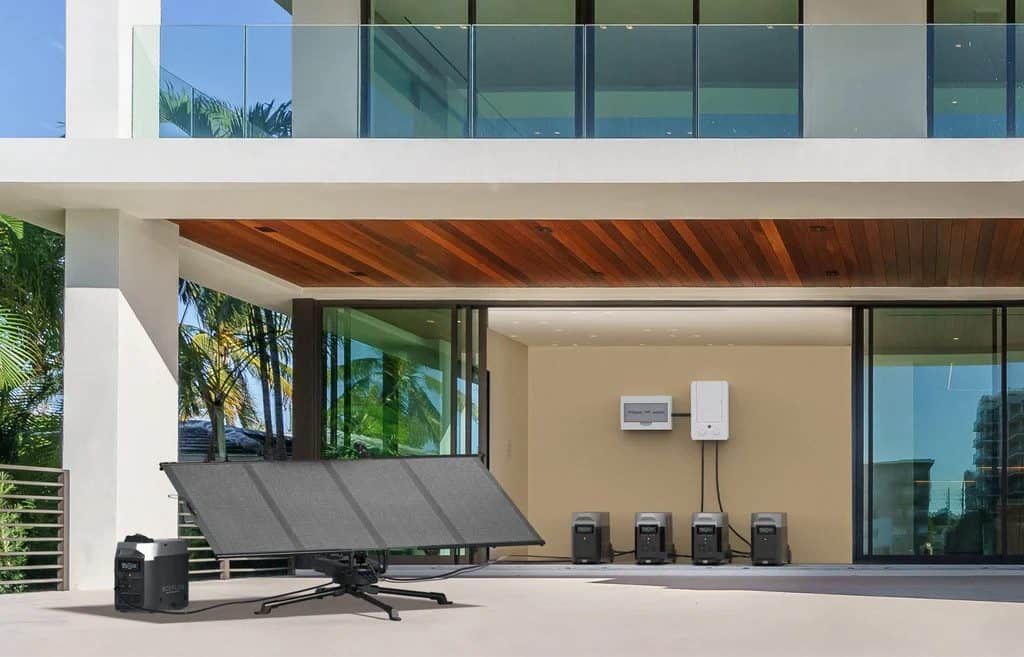
As environmentally conscious consumers become increasingly prevalent today its no surprise that they’re looking beyond fossil fuels for their energy needs during prolonged outages or emergencies. Enter: solar powered backup generators! These cutting edge systems are taking over traditional gasoline powered ones due to the incredible benefits they offer homeowners.
Not only are these units silent and maintenance free (thanks to no moving parts) but they also convert solar energy into electricity efficiently without burdening you with rising fuel costs.
Whether you need a small unit or something more robust to keep your entire household powered up during extended outages- there’s something available in every price range! For those intrigued by the concept of solar powered backup generators taking time to gather information can be crucial in order to weigh all the advantages and disadvantages before committing to a purchase.
Budgeting For A Backup Generator: Costs And Value Considerations
Investing in a portable generator for home backup power is becoming increasingly popular among homeowners who want to protect their residences from power outages.
However, with numerous options available on the market today choosing the right one can seem overwhelming. One of the primary things to consider when buying such equipment is determining how much electricity output is required for your household needs.
If powering specific appliances only during an outage event suffices then opting for smaller generators might work fine; otherwise going for larger models may become necessary but will come at an added cost.
Moreover, it is crucial not just to think about unit size and performance but anticipate other expenses as well before making any purchase commitments- fuel supply like propane or gas must be ensured along with any necessary installation accessories including extension cords covers etc .
Installation fees and ongoing maintenance expenses are also significant considerations when it comes to budgeting for portable generators.
Keeping these factors in mind will help you find a reliable generator with the right energy requirements that matches your budget and house backup plan. Having a reliable backup power source is crucial especially when faced with unexpected blackouts.
As someone who values education you know how important it is to have peace of mind knowing that you’re prepared.
Final Checklist: Ensuring Your Generator Meets Your Home Backup Needs
As I’m sure you’re aware by now purchasing a portable generator involves much more than simply choosing the first option available. Its crucial to take careful consideration of several key factors before making a final decision about which model will meet all your home backup power needs.
The first step is assessing any potential generators’ power output capabilities – this is particularly important if you require electricity for essential appliances like fridges or lights during outages. Make sure any models under consideration have sufficient wattage output ratings before committing to a purchase.
In addition to assessing power output levels, pay close attention to fuel tank size and estimated runtime as provided by manufacturers – these details could directly impact performance in emergency situations where access to fuel may be limited.
Finally, think carefully about storage options for when your generator isn’t in use; while ensuring accessibility during emergencies is crucial, safety and protection from potential hazards must be top of mind.
If you want peace of mind knowing that your portable generator will be available whenever an emergency strikes there are several key steps to take. One crucial factor is selecting a suitable location free from risks such as severe heat or excessive moisture from weather conditions like heavy rain or snowfall.
By being mindful of these elements you can ensure that your generator remains fully operational and prepared for any situation.
Frequently Asked Questions
Does The Generator Come With A Warranty?
Investing in a generator comes with its benefits; however its essential to assess its warranty provisions beforehand. A good warranty doesn’t just take care of any potential issues but also assures that your investment is safe and secure.
When researching various generator brands and models on the market today be sure to ask pertinent questions about their warranties’ specifics regarding coverage terms and limits included with each product range available from these companies.
Most established manufacturers have some type or level of limited warranty included within their product offerings which are worth checking out prior to buying one for yourself today!
How Do I Install The Generator Safely?
When setting up a backup power source for your home with a portable generator safety should always come first.
To avoid accidents pertaining to carbon monoxide poisoning and electrocution hazards while doing so, it is crucial to abide by the instructions provided by the manufacturer without any deviations whatsoever.
Having said that hiring an experienced electrician for thorough checking of your work and obtaining recommendations regarding optimal placement of the generator are smart pre emptive measures against mishaps.
And if you want additional peace of mind when connecting your household power supply with this temporary source of electricity?
Purchase an appropriate transfer switch before proceeding- it is well worth it!
Do I Need To Purchase Additional Accessories For The Generator?
Its important to recognize that certain portable generators might require supplementary accessories in order for them perform optimally.
Although most models will typically include essential items like an oil funnel and spark plug wrench there are also several accessory options available such as power cords or transfer switches which could prove advantageous.
Before purchasing your chosen generator make sure to closely examine all of its technical features so as not overlook any necessary add ons or upgrades.
How Often Should I Service The Generator?
No one wants to be caught off guard without power in times of emergency.
This is why ensuring the effective functioning of your generator through regular maintenance checks can save you from unnecessary headaches later on.
Taking note of certain factors such as checking oil levels and air filters while ensuring all connections are sturdy can go along way in serving its longevity and efficiency for up to 100 hours before another check up or at least once each year.
In cases where handling technical issues yourself feels uncomfortable seek professional help from an authorized dealer or repair technician who can reassure its safe operations.
Is The Generator Compatible With Renewable Energy Sources?
It behooves us all as responsible citizens of this planet to do our part in minimizing harm against our environment whenever feasible.
One way we can accomplish this is by taking into consideration the compatibility between generators and renewable energy sources when choosing one for our homes.
Researching potential candidates that meet these standards is paramount – not only for reducing ones own carbon footprint but also promoting sustainability practices as a whole within society at large.
Conclusion
When looking to buy a portable generator for backup home power supply its imperative to consider several key aspects before settling on one.
Firstly, make sure that the manufacturer provides sufficient coverage through warranties in case of any technical issues cropping up later. This step can save you headaches and costs if unexpected problems arise.
Secondly, prioritize safety during installation and use by following recommended guidelines on handling electrical components and proper ventilation.
Thirdly, understand what additional accessories the generator requires or whether constant maintenance is necessary; this ensures optimum performance levels over time.
Lastly, explore if the generator is compatible with clean energy sources such as solar power, wind power or even battery banks which could help reduce carbon footprint while maintaining backup power needs during emergencies.
By being diligent in your research and analysis of different models available across various price points based on these factors outlined above choosing an ideal portable generator becomes less daunting.
You can relax knowing that your home will always have a reliable energy source ready should there be any unforeseen emergencies or natural disasters requiring backup electricity.



